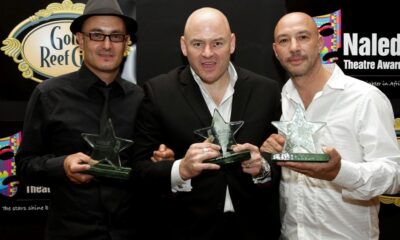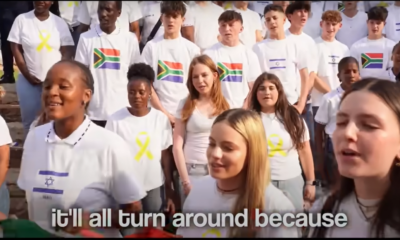
Featured Item

Rap artist speaks to unconverted about Israel
Before 7 October, American Israeli rap artist Rami Matan Even-Esh, otherwise known as Kosha Dillz, wrote and sang love songs, but that has all changed. Now, his aim is to create art that connects people, and to try to get people to understand Israel and the Jewish people.
In the months since the Hamas attacks on the south of Israel, Even-Esh has collaborated with Jewish artists like Matisyahu, an American reggae singer, rapper, beatboxer, and musician; and Kaskade, an American DJ and music producer.
Even-Esh has released six songs since 7 October, singing about the complexities of the conflict in Israel and Gaza. One song, Bring the Family Home (Free the Hostages Now) has amassed 57 000 views since its release. In the chorus, he sings, “Bring the family home, we got the world sayin’/ Cry to death or can’t sleep, that’s the worst pain/ I’ll remember tonight, the night the world changed/ The lion just roared, y’all heard me.”
Even-Esh has also been travelling the world – from American college campuses, to the Olympics in Paris, to the streets of Israel – to try and get people to discuss the complexities of what’s happening in Israel and the world. He has filled his Instagram page with videos of himself engaging with anti-Israel protesters at rallies.
He spent time in Paris for the Olympic Games, where he wrote, recorded, and shot the music video for his new song, Doomscrolling.
“I just wanted to go out and talk to people and see what happens,” he said. “There’s a lot of spaces in the alternative art world where people are like, not only do we support Palestine, but we live in places that are nicknamed ‘Little Gaza’. There’s a lot of places that aren’t great spaces for us, but I go into these spaces knowing I can hold my own because of my career.”
For Even-Esh, releasing his music was his first reaction to the atrocities in Israel and the world’s reaction to them.
“Bring the Family Home was the first song I wrote after 7 October. Then I wrote a song called Ceasefire that was, like, sure, ceasefire, but free the hostages first.
“With everything that’s going on, it was a check-in-on-your-mental-health type question,” he said. “The opening lines are, ‘Jewish man is called an Aryan, but 2020, the humanitarian.’ What does it feel like when someone calls you a Nazi when your family was killed by Nazis? It’s surreal.”
Born and raised in New Jersey, Even-Esh grew up with an understanding of his Israeli roots. His parents grew up in the town of Kiryat Tivon, about 15km southeast of Haifa. As a child, he would spend summers in Israel visiting his grandparents.
When he began his rap career, he gave himself the name “Kosha Dillz” as a homage to his Jewish heritage. When people started making fun of the name, he changed it to “KD Flow”, which sounded less Jewish. Eventually in 2004, after a battle with drug addiction and being arrested, he changed his name back to Kosha Dillz.
“It just had a Jewish gangster kind of vibe. I was into all the Jewish gangsters and the Jewish guy in the Italian mob movies. At the end of it all, it was all about being a tough Jewish person,” Even-Esh said.
He said he started talking about and referencing Israel only in 2008 and 2009 when he would be in hip-hop circles and would bring up Israel to see the reaction of his peers.
Even-Esh is the only Jewish rap artist featured on the rap television show Wild ’n Out, where he can freestyle rap with others in the hip-hop community.
“Anything I do, especially in a Jewish context, needs to be high quality on an artistic level,” he said, “so that I can get respect not only from people who are looking at the Jewish side of things, but also on an artistic level. Some people are fans just because of the Jewish stuff, they would just support you anyway. But I need to get artistic respect, make great music, and play high-level things.
“I need to be a successful songwriter, be successful in collaboration, have massive songs with big people, and have a lot of people support me because I’m a great rapper, not just because of the Jewish stuff.”
Even-Esh composed his song, It’s Time to Have a Conversation as a direct response to the song Hind’s Hall by Macklemore, a song praising the encampments of college students in support of Hamas with the lyrics, “Claimin’ it’s antisemitic to be anti-Zionist; I’ve seen Jewish brothers and sisters out there and ridin’ in solidarity and screamin’ ‘Free Palestine’; with them organizin’, unlearnin’, and finally cuttin’ ties with a state that’s gotta rely on an apartheid system.”
The music video for It’s Time to Have a Conversation was filmed outside an anti-Israel rally in New York City. The song challenged Macklemore’s claims of genocide in Gaza, the fact that he didn’t address the need to bring home the hostages, and his overall ignorance about the subject.
Even-Esh hopes that one day, he can return to making albums about love songs.










